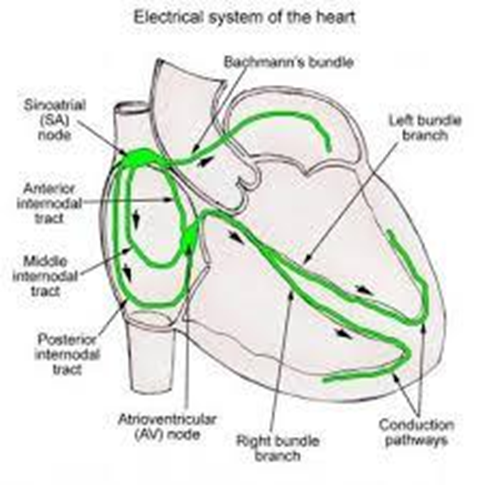Which of the following is the result of increased concentration of red blood cells on blood pressure?
Decreased blood pressure due to increased blood viscosity
increased blood pressure due to decreased blood viscosity
Decreased blood pressure due to decreased blood viscosity
C increased blood pressure due to increased blood viscosity
The Correct Answer is D
a. Decreased blood pressure due to increased blood viscosity: Increased viscosity makes blood flow more difficult, raising blood pressure, not lowering it.
b. Increased blood pressure due to decreased blood viscosity: Decreased viscosity would make blood flow easier, potentially lowering blood pressure, not raising it.
c. Decreased blood pressure due to decreased blood viscosity: Same error in reasoning as b.
d. Increased blood pressure due to increased blood viscosity: Red blood cells are the main components of blood that affect its viscosity (thickness). An increased concentration of red blood cells (erythrocytosis) makes the blood more viscous. Thicker blood increases resistance to flow within blood vessels, making the heart work harder to pump blood, which can lead to increased blood pressure.
Nursing Test Bank
Naxlex Comprehensive Predictor Exams
Related Questions
Correct Answer is D
Explanation
a. Carrying oxygenated blood from the heart to the peripheral tissue: This describes the function of systemic arteries, not the pulmonary artery.
b. Carrying deoxygenated blood from the lungs to the heart: This describes the pulmonary veins, not the pulmonary artery.
c. Carrying oxygenated blood from the lungs to the left side of the heart: This describes the function of the pulmonary veins, not the pulmonary artery.
d. Carrying deoxygenated blood from the right side of the heart to the lungs: Correct. The pulmonary artery carries deoxygenated blood from the right ventricle of the heart to the lungs for oxygenation.
Correct Answer is B
Explanation
a. Purkinje fibers: Purkinje fibers are the last structures to receive the signal within the ventricles, causing them to contract.
b. Bundle of His: The correct sequence of the cardiac conduction system is as follows: The electrical impulse originates in the sinoatrial (SA) node, then travels to the atrioventricular (AV) node. From the AV node, the impulse travels to the Bundle of His. After the Bundle of His, the impulse travels through the bundle branches and finally reaches the Purkinje fibers, which facilitate the contraction of the ventricles.

c. Bundle branches: The electrical impulse for heartbeat originates in the SA node (sinoatrial node). It then travels to the AV node (atrioventricular node), which delays the signal before sending it to the Bundle of His. The Bundle of His splits into right and left bundle branches, which distribute the electrical signal to the Purkinje fibers in the ventricles, causing them to contract in a coordinated fashion.
d. SA node: The SA node initiates the electrical impulse, not receive it after the AV node.
Whether you are a student looking to ace your exams or a practicing nurse seeking to enhance your expertise , our nursing education contents will empower you with the confidence and competence to make a difference in the lives of patients and become a respected leader in the healthcare field.
Visit Naxlex, invest in your future and unlock endless possibilities with our unparalleled nursing education contents today
Report Wrong Answer on the Current Question
Do you disagree with the answer? If yes, what is your expected answer? Explain.
Kindly be descriptive with the issue you are facing.
